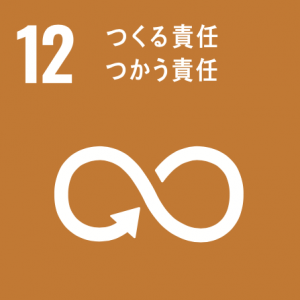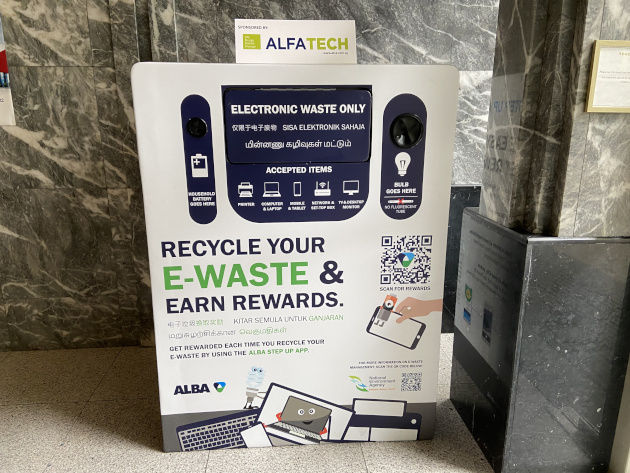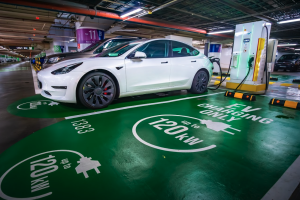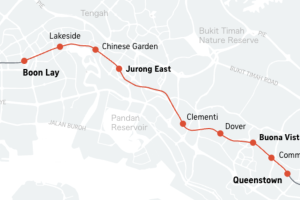2022.06.01
Youth Report by NUS
シンガポール国立大学(NUS)語学教育研究センター(CLS)LAJ4203 Newspaper Readingの日本語履修生が日本語で様々なトピックを綴ります。
スマートシティの責任

私たちはSDGsを支援しています
毎年新しいiPhoneの販売が始まると、アップルストアの前に大行列が見られる。Nintendo Switchやスマートウォッチなど、大抵の新しい電子機器は注目を集め、シンガポール人はすぐ流行に乗ってしまう。今の時代、電子機器は「壊れたから」ではなく、「新型が欲しいから」買い替えられるものになった。その廃棄されたものの運命については、皆無関心だ。
捨てられた携帯電話、テレビ、そして、CDなどは電子電気機器廃棄物と呼ばれる。この国では普通の燃えるゴミのように扱われている。しかし、電子廃棄物には様々な有害物質が含まれ、廃棄物を焼却することで有毒ガスが排出されると知られている。この電子廃棄物の危険性にも関わらず、シンガポールの電子廃棄物の量は東南アジアで最大だ。毎年6万トン近くの電子廃棄物が発生しており、その中の約6%しかリサイクルされていないという。それに対して、世界の電子廃棄物のリサイクル率は平均17.4%、欧州が世界最高で42.5%にも達する。しかし、シンガポールには電子廃棄物のリサイクルの法律がないため、適切なゴミ分別についての協力を消費者に要請するほかない。
スマートシティを目指すシンガポールは今後も電子機器の利用率の増加が見込まれている。しかし残念ながら、シンガポールにはゴミ分別の習慣
がなく、一般的に、電子廃棄物のリサイクルの知識もほとんどないため、買い替えられた電子製品はそのままゴミ箱に捨てられることが多い。
この問題を解決するにはまず電子廃棄物のリサイクル置き場を増やすべきだ。シンガポール内にはいくつかの電子廃棄物のリサイクル置き場しかない上、置き場の認知度も低い。電子廃棄物のリサイクル置き場を増やすことによって、リサイクルすることが更に便利になるし、電子廃棄物のリサイクルの重要性が人々に伝わるだろう。一方で、電子廃棄物のリサイクル法は検討されているが、未だにリサイクルに関連する法律が制定されていないシンガポールにおいては時期尚早だ。ごみの排出者として、私たちは責任を持たなければならない。シンガポールがスマートシティへの道を進もうとする前に、電子廃棄物処理の体制を整える必要があるだろう。

《英語翻訳》
Every year, we see pictures of Singaporeans queueing overnight the Apple store whenever Apple releases its new Iphone series. From gadgets such as the Nintendo Switch to smart watches, many new electrical devices come into the spotlight in Singapore, and Singaporeans always rush to follow the latest gadget trends. In today’s age, electrical devices are now things that are replaced not because they are broken, but because their owners want the latest device instead. As for the fate of these old devices that are abandoned, Singaporeans are seemingly unconcerned.
Electronic gadgets such as mobile phones, televisions and even CDs that are thrown away are known as electronic waste, or e-waste for short. Many Singaporeans treat e-waste as normal waste. E-waste contains harmful substances that when incinerated, releases toxic gases into the air. Despite the dangers, Singapore has been said to be Southeast Asia’s biggest e-waste generator. Only about 6% of the 60,000 tonnes of e-waste that Singapore generates annually is recycled. In comparison, 17.4% of the world’s e-waste was recycled in 2019, with Europe being the largest contributor at 42.5%. Unfortunately, with no legislations regarding e-waste management in Singapore, the government only encourages consumers and producers to properly manage and recycle e-waste.
As we transition towards the goal of a Smart Nation, our usage of electronic devices is expected to rise. Unfortunately, because Singapore lacks a culture of separating garbage as well as having a lack of e-waste recycling knowledge, most electronic devices are simply thrown away in trash bins. The first step to solving this problem is increasing the number of e-waste collection points. In addition to there being only a few e-waste collection points within Singapore, the awareness of these locations is also lacking. By increasing the number of e-waste collection points, recycling e-waste not only becomes more convenient, but it also conveys the importance of e-waste recycling. While there is also the option of creating regulations for e-waste recycling, as a country with yet any laws regarding recycling, it might be a move too premature. As producers of waste, we have a responsibility to hold. Before Singapore transitions into a smart city, it must first settle its e-waste management systems.

ジュリアン・リム
初めまして、ジュリアンです。大学ではコンピュータ工学を勉強していました。今は日系ゲーム会社に勤めています。日々は忙しいですが、日本語とゲーム、両方の趣味を仕事に生かすことができて毎日楽しいです。よろしくお願いします。
■気になっているニュース■
パワーアシストスーツ
体に装着して力仕事やリハビリを助ける「パワーアシストスーツ」を使った運動会が2001年3月6日、広島県福山市で行われた。イベントは東京五輪・パラリンピックにちなみ、「ロボ人(じん)ピック」と名付けられた。「パワーアシストスーツ」は主に体の不自由な人や労働者などの補助をする機械。シンガポールは日本と同じく高齢化が進んでいるので、高齢者の移動のサポートをする機械として需要があるかもしれない。実用的な使用方法に加え、上記に書いたようなレクリエーションの使用方法もあるのはいいことだろう。それに加えて、パワーアシストスーツの機械同士の大会を開催して公開することもおもしろいかもしれない。



